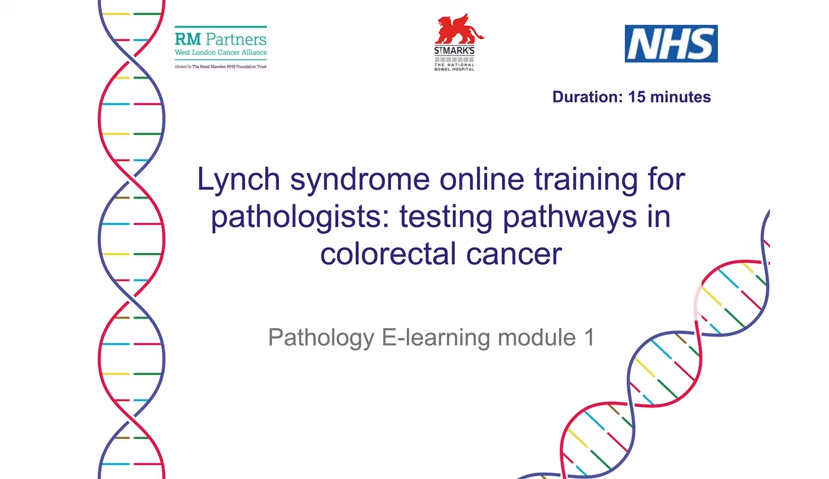Lynch Syndrome online training for pathologists


Lynch syndrome is a cancer predisposition syndrome in which the main concerns are colorectal and endometrial cancer. There is also a risk of other cancers, although less frequently.
The National Lynch Syndrome Project Team (lead by the North Thames & South East GMSA teams), in collaboration with Dr Nicholas West, Associate Professor of Pathology and Honorary Consultant in Gastrointestinal Pathology, University of Leeds, have launched an online training for pathologists which is currently available via the RM Partners West London Cancer Alliance.
This training includes modules focussed on both colorectal cancer and endometrial cancer pathways. It is recommended that participants take the modules and tests specific to the cancer pathway they work within.
The training involves watching two short videos which cover all the different stages of the Lynch syndrome pathway, and then completing the two related online questionnaires to ensure that you have understood correctly the processes and procedures for testing. In addition, the training provides a range of supporting documents to help understand this pathway.